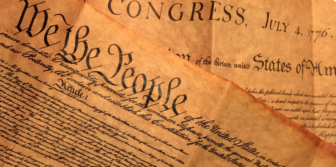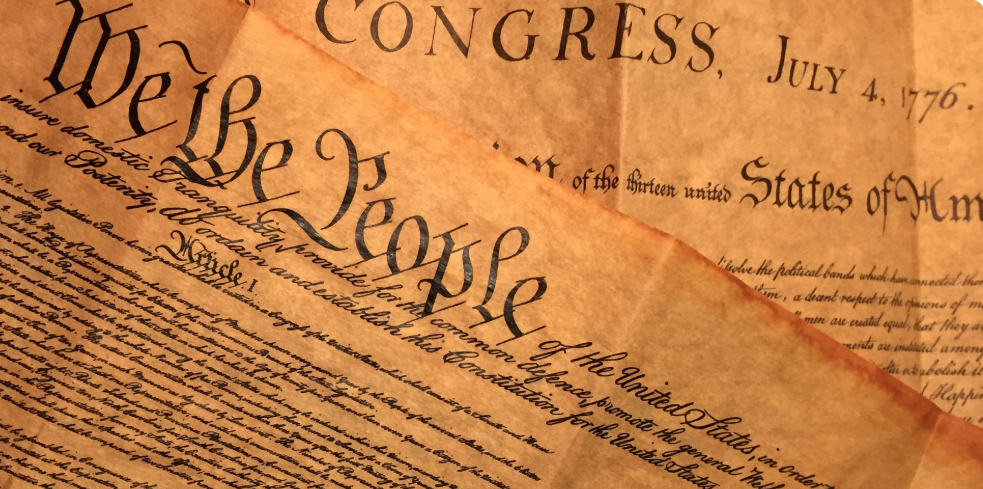Darien Library is hosting a four-week series by historian Mark Albertson on the Roadblocks to Republic.
It will highlight four examples in American history that deeply affected the course of America and/or threatened the viability of representative government.
Each of the four lectures take place in the Community Room from 3 to 4:30 p.m. on successive Mondays, starting Feb. 3.
— This article is based on announcements from Darien Library
Week One: The Newburgh Incident, March 15, 1783
Despite the impending defeat of Cornwallis’s army at Yorktown, the Continental Army was hardly a together force. Beginning in 1780, mutinies plagued Washington’s army.
 Pay was slow if at all; promised fresh uniforms were not forthcoming; food was intermittent, causing soldiers to steal from the farmers they were fighting for.
Pay was slow if at all; promised fresh uniforms were not forthcoming; food was intermittent, causing soldiers to steal from the farmers they were fighting for.
But the greater danger was from the officers, who had been promised a half-pay pension for life . . . from a government that lacked the power to properly tax and with a fiat currency upon to pay for the war.
The potential political danger posed by officers to the Continental Congress was averted by George Washington in one of his finest hours as a commander.
Week Two: Shea’s Rebellion: August 1786-February 1787
Western and Central Massachusetts, discontent spread in reaction to a depression that resulting in small farmers having their holdings seized for failure to pay onerous debts.
Town meetings saw petitions demanding reductions in the debts and delinquent taxes, with many facing imprisonment. Daniel Shays, a Revolutionary War veteran the armed riposte.
This episode spurred the formation of a General Government for the nation; and not a Democracy, but a Representative Republic.
Week Three: The Northwest Ordnance, 1787
Resorting to a liberal use of geography, Manifest Destiny will be charted from 1787 to the conclusion of the Mexican-American War.
America was creating an Empire, a contiguous empire. Included, too, will be the Louisiana Purchase and the Missouri Compromise of 1820, as the Republic dealt with the issues of Slavery and Manifest Destiny.
Week Four: Power of the Presidency
This talk will examine the presidencies of Abraham Lincoln and Jefferson Davis. Both flirted with and even exercised the power of central control as the War Between the States progressed.
As States Rights died in the Confederacy, Habeas Corpus was suspended by Lincoln, and some journalists were arrested and jailed as well. Interesting look into these presidencies, setting the stage, perhaps, to 1917 and 1941.
About the Presenter
Mark Albertson is the historical research editor at Army Aviation magazine and is a long-time member of the United States Naval Institute. In addition, Mark teaches history at Norwalk Community College.
His courses include: World War I and Iraq: Creation of Colonialism; A History, Vietnam; A History, World War I; The Turning Points of World War II; The Great Patriotic War: The Titanic Clash Between Nazi Germany and the Soviet Union; and American Empire: Grand Republic to Corporate State.
In May 2005, Mark was presented with a General Assembly Citation by both houses of the state legislature in Hartford for his effort in commemorating the centennial of battleship Connecticut.

